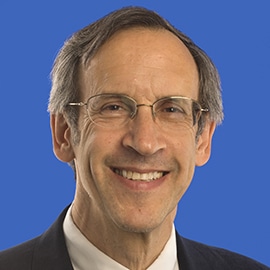
While we can’t slow down time or stop ourselves from growing older, there are quite a few things we can do to feel our best as we age. The truth is: our lifestyle matters. Not everyone has the privilege of living a long, full life and that may have something to do with one’s lifelong health and wellness habits.
There are three goals we should maintain to help us reach an old age and prevent age-related brain illnesses, and while they may seem simple, these concepts are easily forgotten in the hustle and bustle of our daily lives.
Protect your health and safety. As simple as this sounds, sometimes we forget small details that help maintain the wellness of ourselves and others. For example, wear the helmet, buckle the seatbelt, wash your hands before eating and ensure you’re keeping track of your yearly health exams. Small and routine actions help create a lifestyle that promotes our continuation of health and safety.
Do what you can to prevent illness. As we live through a pandemic, this piece of advice is as important as ever. Appointments for wellness exams and vaccines for life-threatening illnesses are available at most health care organizations, including UofL Health. Take the time to sanitize your hands and frequently touched surfaces each day. If you need an annual wellness exam or are interested in getting a vaccine, please visit UofLHealth.org.
However, preventing sickness goes beyond cleanliness and preparation. Sometimes we cannot control our exposure to sickness and must rely on our immune systems to defend our bodies. To properly fuel our immunity, we must eat a nutritious diet (mostly plants), partake in physical activity each day and get enough quality sleep each night. Consuming products high in sugar and saturated fat are bad for your health. These habits can help ensure we are feeling our best.
Maintain a level of activity and fitness. Finding new ways to mentally stimulate and physically exert ourselves is a great part of keeping our minds sharp and our bodies feeling young. It is more effective to form these habits during your youth and diversify them as you age. Hobbies, interests and capabilities change over time, but there are plenty of options available to keep you active.
There are four types of stimulation we need to properly enrich ourselves.
- Cognitive activity – This means we are continuing to learn new things and challenge our ways of thinking. For children, this may look like going to school and learning to read. For an adult, this could include learning a new language or learning to crochet.
- Physical activity – Persistent and regular activity is a key component to managing your overall wellness. Completing 30 minutes of exercise each day, regardless of weather or circumstance, is enough to make a positive impact. This can be an organized sport or as casual as a walk outdoors or on the treadmill.
- Psychological activity – This pertains to our personal relationships. It is good for us emotionally to belong to groups and partnerships. The company of others can keep us motivated to take better care of ourselves and maintain a routine. Positive relationships can be spouses, an organized book club, a group of friends or a group of colleagues.
- Social activity – Social engagement can go hand in hand with the three other types of activity by including friends, physical exercise and a craft or task. Social community involvement can increase your sense of belonging and desire to stay active. Physical and mental declinations occur at a faster rate when people live a more solitary lifestyle.
The positive influence of starting these habits as early as possible is substantial. Establishing a lifestyle focused on health, safety and wellness can lower the risks of age and brain related illness. But these habits must maintain part of your routine as an adult and especially later in life.
While genes play a role in developing age-related and life-threatening illnesses, genes operate based on our routine environment. Our genes can determine our risk of developing an illness, but our lifestyle has a major influence on determining our health outcomes.
If you or someone you know is struggling with memory related or mental functioning issues, our team of neurologists may be able to help.









